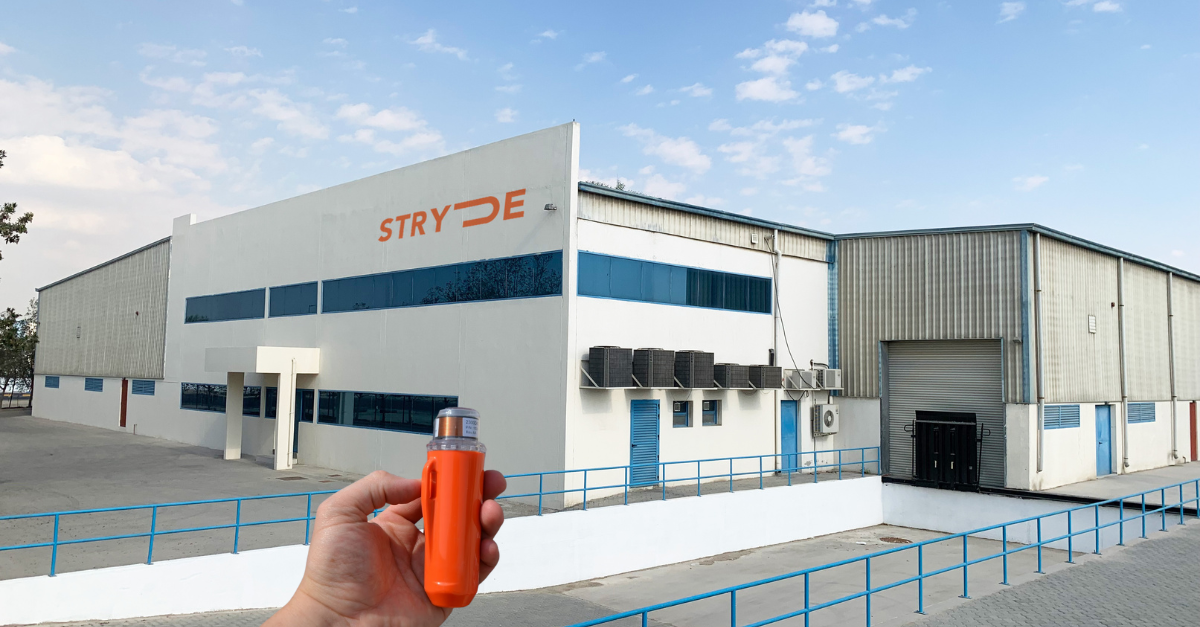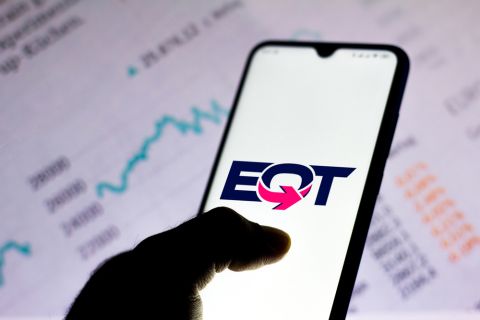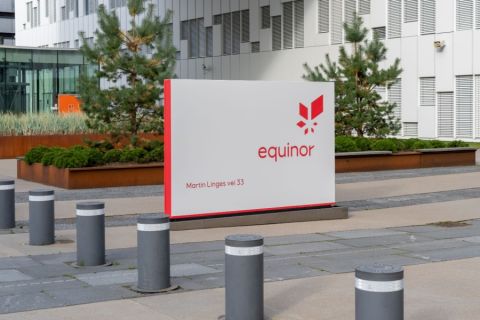From a shut-in in Brazil to the signing of a new production sharing contract (PSC), below is a compilation of the latest headlines in the E&P space within the past week.
Activity headlines
Petrobras shutting in Bahia operations
Following an audit by Brazil’s Agência Nacional do Petróleo (ANP), Petrobras said it was safely shutting in operations on 37 onshore oil and gas production facilities in Bahia.
The shutdown followed the receipt of an interdiction notice from the ANP for the shutdown.
Contracts and company news
Tullow signs new Ivory Coast PSC
Tullow Oil signed a PSC to operate offshore exploration license CI-803 in Côte d'Ivoire’s Tano Basin with 90% equity. PetroCi holds the remaining 10% interest. CI-803 covers an area of 1,345 sq km and is adjacent to license CI-524, which Tullow operates with 90% on behalf of PetroCi, which holds 10%.
The new exploration license is in the Tano Basin, where prospectivity has been identified within the proven Cretaceous turbidite plays, similar to the plays producing in the adjacent TEN and Jubilee Fields, Tullow noted.
The work program for the initial two and a half years includes reprocessing existing 3D seismic data and prospect evaluation. In CI-524, several drill candidates are being matured while preparations continue for an exploration well to be drilled during 2024.
Shell sells Baram Delta interests
Shell subsidiary Sarawak is selling its non-operated stake in two offshore production sharing contracts to Petroleum Sarawak Exploration & Production Sdn. Bhd. The sale concerns assets in the Baram Delta offshore Malaysia.
The transaction is expected to be finalized in early 2023 with base consideration for the sale being $475 million and contingency payments of up to $50 million based on commodity prices.
“This decision is in line with our work to continue focusing our portfolio,” said Zoe Yujnovich, Shell’s upstream director.
Omnira to modernize Apache reserves management
Apache Corp. has chosen Omnira Software’s MOSAIC system to modernize its reserve management process, Omnira announced.
MOSAIC will help Apache standardize and digitalize its workflows for economics and reserves management.
Pason ups investment in IWS
Pason Systems Inc. said it has increased its non-controlling investment in Intelligent Wellhead Systems Inc. (IWS) through the acquisition of outstanding common shares of IWS with an aggregate purchase price of $7.9 million and an agreement to invest up to $25 million in preferred shares of IWS.
The funds will support IWS' ongoing growth initiatives and accelerate the development and deployment of IWS' technologies.
"IWS' InVision Technology Platform has gained traction while enabling automated valve management processes for continuous frac operations in a safe and efficient manner, increasing the number of frac stages per day for several operators. Over the past year, IWS has seen strong growth in the adoption of its technologies, and we expect this additional capital will accelerate IWS' ongoing growth," said Jon Faber, president and CEO of Pason.
CGG to reprocess Utsira OBN survey
CGG announced an agreement with Carbon Transition subsidiary Axxis Multi Client to reprocess the Utsira ocean bottom node (OBN) seismic survey in the Norwegian North Sea.
Under the deal, CGG will reprocess the Utsira survey, which is the largest ultra-high resolution OBN survey conducted in the North Sea. It covers approximately 2,000 sq km.
The reprocessing will apply CGG’s latest advances in OBN processing and imaging technology, including time-lag full-waveform inversion. CGG said the effort will significantly improve the velocity model, overall image resolution and frequency content for fault interpretation and reservoir characterization workflows. The reprocessed product will advance the Utsira OBN survey and better assist clients with existing petroleum production and reservoir management. The project is expected to deliver a priority area in third-quarter 2023 with final data for the complete survey in 2024.
CGG had previously carried out reprocessing on a sub-set of the Utsira survey.
The Utsira area holds several significant oil and gas fields, including Edvard Grieg, Ivar Aasen, Balder, Gina Krog, Gudrun and Johan Sverdrup, along with a number of undeveloped discoveries and prospects.
STRYDE opens new warehouse in Dubai

STRYDE is opening a new million-dollar multi-purpose warehouse in Dubai.
Located in the Jebel Ali Free Zone, the warehouse has the capacity to stock over one million land seismic nodes and hold the company’s containerized node management systems. The warehouse will also offer classroom and practical training facilities for STRYDE users along with the ability to learn node deployment and retrieval activities in its secure yard.
The expansion will help STRYDE service recently awarded contracts, according to Kevin O’Connell, STRYDE’s head of field operations.
“Having a dedicated training facility and a base for our team of expert field support engineers will enable us to provide real-time support to our customers,” he said in a press release.
AspenTech, Aramco partner on CCU solution
Aspen Technology and Saudi Aramco partner to bring new carbon capture & utilization software innovation to market.
Aspen Technology announced a partnership with Aramco to introduce an integrated modeling and optimization solution for carbon capture and utilization (CCU).
The new solution is based on technology developed by Aramco collaboratively with the Korea Advanced Institute of Science & Technology (KAIST). Aramco, through its subsidiary, Saudi Aramco Technologies Company (SATC), has licensed the technology to AspenTech as part of its broader capabilities to optimize carbon emissions reduction. It will aim to address the identification of the most promising CCU paths by simultaneously considering economics, process design and operations constraints and CO2 reduction.
The objectives of the solution will be to allow companies to: optimize CCU configurations to determine the optimum balance between emissions and profitability objectives; evaluate the impact of uncertainty in energy costs, carbon fees and raw material and product costs; and develop short, intermediate and long-range production and strategic plans that include consideration for optimum CCU options to simultaneously address profitability and sustainability objectives.
Regulatory updates
ANP approval could increase exploration activity
Brazil’s Agência Nacional do Petróleo (ANP) has approved a proposal to rescind contracts for offshore exploration blocks operated by Petrobras suspended for long periods due to delays in environmental licensing.
The agency said the move will make it possible to unlock investments that can be effectively carried out in areas granted in the Brazilian Equatorial Margin, a Brazilian region with a very high potential for new discoveries, such as the exploratory success achieved in the similar sedimentary basins of Guyana, Suriname and the West African Coast, but whose last exploratory well was drilled in 2015.
For termination to occur, the company will have to transfer investments associated with the minimum exploratory programs (PEM) not carried out to other concessions on the Brazilian Equatorial Margin, in the form of drilling two new exploratory wells, as additional investments to their respective receiving contracts.
Eight contracts, including 15 blocks, currently fit the criteria described: BM-J-4 (blocks JM-115, JM-165, JM-3, JN-5 and JM-63) and BM-J-5 (blocks JM-59 and JM-61), in the Jequitinhonha Basin; BM-CAL-9 (CAL-M-188 block), BM-CAL-10 (CAL-M-3, CAL-M-58 and CAL-M-60 blocks), BM-CAL-11 (CAL-M block -248) and BM-CAL-12 (block CAL-M-372), in the Camamu-Almada Basin; and BM-PEPB-1 (block PEPB-M-783) and BM-PEPB-3 (block PEPB-M-839), in the Pernambuco-Paraíba Basin. All are operated by Petrobras with a 100% stake in the consortium, with the exception of contracts BM-CAL-12, BM-PEPB-1 and BM-PEPB-3, in which other companies participate.
ANP to hold hearing on safety regulations
Brazil’s Agência Nacional do Petróleo (ANP) will hold a public consultation and hearing on the review of the operational safety regulatory framework for exploration facilities and oil and natural gas production.
Five resolutions and their technical regulations will be consolidated into a single resolution and a single attached technical regulation, with the set of management practices valid for any type of installation.
According to the ANP, the unification will simplify administration and reduce the necessary number of processes, documents, analysis and decisions. It will also facilitate the operationalization and inspection of standards, with the various types of installation contemplated in a single standard and the direction of the technical regulation for management practices.
The ANP said the proposed revision was based on the lessons learned from inspection activities and incident investigations. In addition, extensive benchmarking was carried out with institutions from different countries (such as Australia, the U.S., Norway and the U.K.) and from other industry segments, such as the nuclear industry, and contributions were received from the oil and gas industry itself, from documents, seminars and meetings.
Recommended Reading
BP Restructures, Reduces Executive Team to 10
2024-04-18 - BP said the organizational changes will reduce duplication and reporting line complexity.
Matador Resources Announces Quarterly Cash Dividend
2024-04-18 - Matador Resources’ dividend is payable on June 7 to shareholders of record by May 17.
EQT Declares Quarterly Dividend
2024-04-18 - EQT Corp.’s dividend is payable June 1 to shareholders of record by May 8.
Daniel Berenbaum Joins Bloom Energy as CFO
2024-04-17 - Berenbaum succeeds CFO Greg Cameron, who is staying with Bloom until mid-May to facilitate the transition.
Equinor Releases Overview of Share Buyback Program
2024-04-17 - Equinor said the maximum shares to be repurchased is 16.8 million, of which up to 7.4 million shares can be acquired until May 15 and up to 9.4 million shares until Jan. 15, 2025 — the program’s end date.







